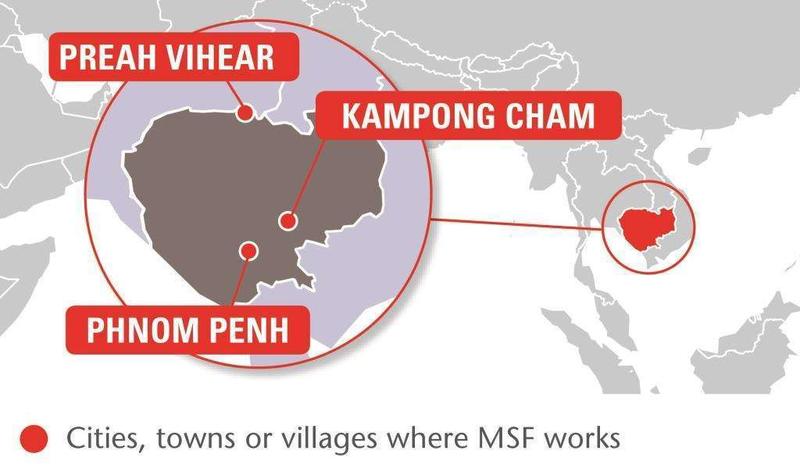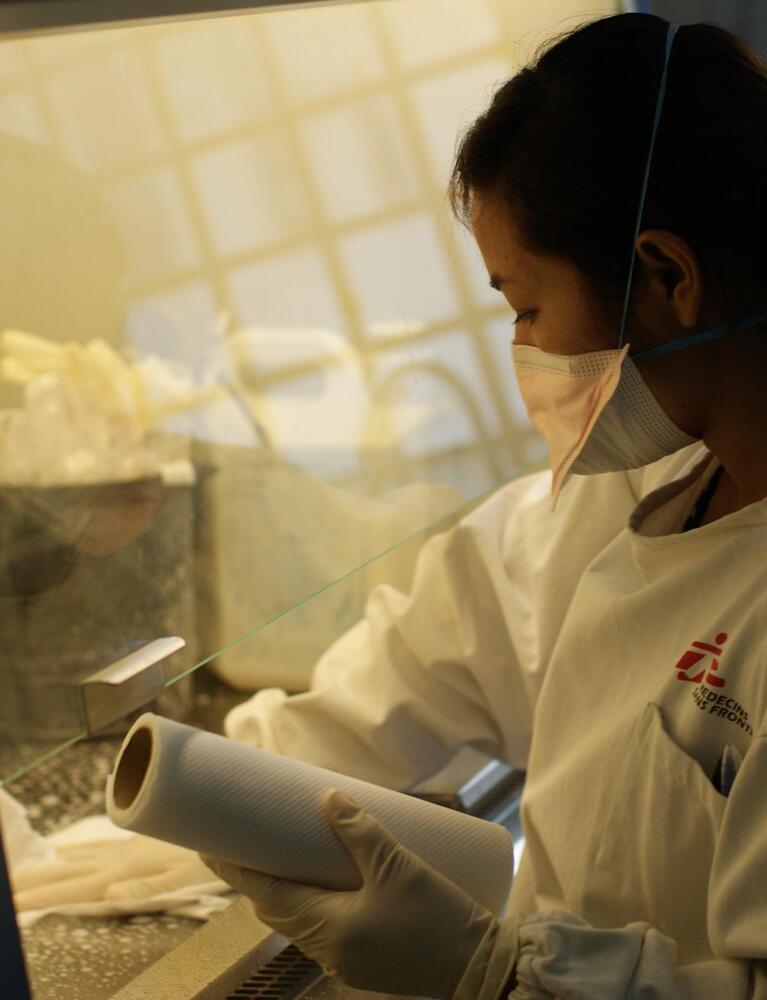Cambodia has one of the fastest growing economies in Asia after two decades of relative stability, following a catastrophic civil war and the end of the Khmer Rouge regime.

Two million people died between 1975 and 1978 during Pol Pot’s brutal leadership of the country.
The economy is dominated by garment-making, but tourism is expanding, and there are hopes to tap into offshore oil and gas reserves and draw in overseas investment.
Médecins Sans Frontières/Doctors Without Borders (MSF) first worked in Cambodia in 1979. Our work in the country is focused on treating endemic diseases like HIV and tuberculosis (TB).
[[Country-Facts]]
MSF’s work in Cambodia: 2015
In 2015, a project providing prevention, screening with advanced diagnostics and treatment for artemisinin-resistant strains of malaria was launched in Preah Vihear province.
Resistance to artemisinin, currently the most effective antimalarial drug, has been identified in certain parts of Cambodia, and this means that the disease is becoming more difficult to treat and eliminate in these areas.
If the resistant parasites spread beyond the Mekong region and reached other parts of Asia or Africa, they would pose a huge public health threat, as was the case when parasites became resistant to earlier antimalarial drugs.
MSF has opened a project in Preah Vihear province, where there is proven resistance to artemisinin. This is an underdeveloped and remote border region, where population movement and a lack of healthcare make malaria hard to control.[[Article-CTA]]
The new project targets the most at-risk people, and focuses on researching how resistant malaria is transmitted and evaluating which strategies could contribute to the elimination of the disease locally. Throughout the year, MSF worked with the Ministry of Health and the communities to increase awareness and case detection.
Treating TB in Kampong Cham
MSF started to hand over the last of its comprehensive TB care programmes in Kampong Cham province this year, including activities in Cheung Prey, to the Cambodian health authorities and other organisations.
Staff also carried out three rounds of active TB case-finding in 2015, in Tboung Khmum and Krouch Chhmar districts.
While this brings MSF’s response to TB to a close in the country, an agreement has been reached with health authorities to open a hepatitis C programme in 2016.



